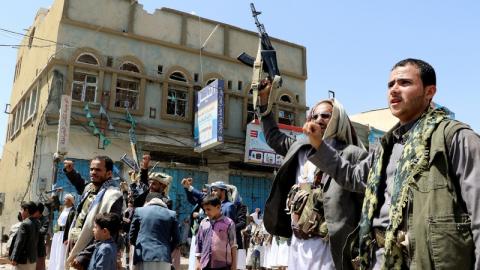In the Iran struggle, information is ammunition


By Michael Gerson
WASHINGTON :Though events in Iran are murky, their direction is historic.
The Iranian regime – which has made a project of destabilizing others through terrorism and regional adventurism – has been revealed as deeply unstable. Many Iranian citizens thought that the election of the “moderate” Hassan Rouhani as president would bring more sensible and effective governance. Those hopes have fizzled. Many Iranians thought that the nuclear deal’s sanctions relief and unfrozen assets would improve their lives. For the most part, they haven’t.
The result – put in terms President Trump would appreciate – has been a broad revolt against the Iranian political establishment. The Iranian government’s problem is no longer a matter of performance but of legitimacy. Routine corruption, vicious oppression and economic mismanagement are increasingly seen as essential to the regime itself.
The short-term prospects are a different matter. Those who hope that the Iranian national revolution will succeed in a single, big push – like the crowd turning against the Romanian dictator Nicolae Ceausescu in Palace Square – are likely to be disappointed. In most civil resistance movements, the purpose of mass protest is not to overthrow the government directly. It is to convince observers – and especially elements of the police and army – that they can turn against the regime without imprisonment or death. Protests act as a signal to potential defectors that their risk is reasonable. If enough people join them, the chance of violence diminishes.
This depends on the protesters rejecting violence themselves. In a study of civil resistance campaigns between 1900 and 2006, researchers Maria Stephan and Erica Chenoweth found that nonviolent efforts succeeded 53 percent of the time, compared with 26 percent for violent campaigns. And nonviolent approaches generally succeeded in less than half the time (an average of about three years). Why this difference? Because violence reduces public participation, which makes defections less likely.
With this in mind, what should America be doing? U.S. policy has generally had two objectives: lengthen the Iranian regime’s nuclear timeline and shorten Iran’s democratization timeline. Nuclear proliferation isn’t particularly good anywhere. But such weapons are far less dangerous in the hands of democratic governments. For proof, just compare India to North Korea.
There is significant disagreement on the best way to lengthen the Iranian nuclear timeline. In the 2015 Iran nuclear framework, the Obama administration made huge concessions to buy some delay. But whatever your view on that agreement, the matter at hand is supporting democratic change. And since direct meddling in Iranian affairs by America is toxic, this task requires some creativity.
If the objective is to give the Iranian opposition the time and space to encourage recruits and defections, then the Trump administration needs to increase the cost to the regime of a comprehensive crackdown. This would need to be done in concert with the Europeans, making clear that repression will bring a return to economic isolation and sanctions. An effective U.S. response would also attempt to increase the access of Iranian citizens to the internet and social media – which is effectively blocked – through public pressure or (some have suggested) satellite internet access. This would permit the spread of information about the regime – how about better publicizing the cost of Iranian interventions in Lebanon, Syria and Gaza? – and reveal regime violence to the world in real time. In a struggle like this one, information is ammunition.
Implicit in all this is something often dismissed and completely undeniable: the strategic value of democracy promotion in a strong foreign policy. Much about the future of the Middle East, and the nature of the nuclear threat, now depends on it.
The Washington Post

Yemeni officials on Monday condemned arrests and prosecutions by the Iran-backed Houthi militia directed against media, journalists and celebrities…

Yemen's warring parties are gearing up for new waves of conflict in 2023 amid a lack of decisive steps towards sustainable peace, adding to the suf…

The UAE will help to recruit doctors and deliver crucial supplies for hospitals in Yemen under a major healthcare drive. The Khalifa bin…